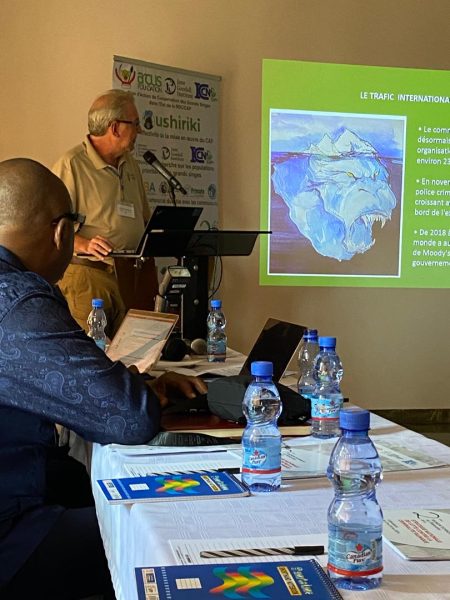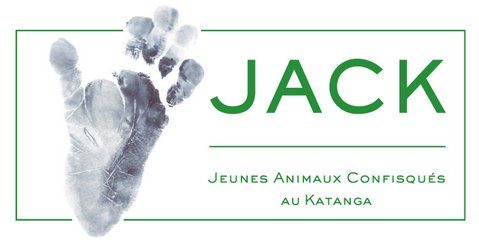From 22 to 24 May 2024, a three-day technical meeting was held in Lubumbashi, bringing together USAID, the Ministry of the Environment and Sustainable Development, ICCN (Institut Congolais pour la Conservation de la Nature) and all those involved in wildlife conservation (National Parks, Santuaries, Zoos, NGO’s fighting against wildlife crile, etc.). The aim was to develop a national strategy to combat wildlife crime.
Strengthening local leadership and private sector involvement
At the heart of the discussions was the need to strengthen the leadership and participation of the various local organisations and the private sector in conservation efforts. Greater involvement of local communities and private sector players is essential to ensure the success and sustainability of our strategy.
Indeed, the people living near protected areas play a crucial role in monitoring and protecting wildlife. Their knowledge of the terrain and their attachment to their natural resources make them ideal allies in the fight against poaching. As for the private sector, its financial and operational involvement can provide significant support for conservation initiatives.
Improving the policy and regulatory environment
Participants also stressed the need to improve the political and regulatory environment for biodiversity.
Several avenues were mentioned, such as strengthening sanctions against traffickers, clarifying institutional mandates and setting up coordination mechanisms between the various government agencies involved.
Innovative, evidence-based approaches
In addition to these institutional and political aspects, the meeting also focused on the adoption of innovative, evidence-based approaches in the conservation sector.
At the end of the three days of intense discussions, the participants committed themselves to finalising the national strategy to combat wildlife crime.
Expected outcomes include :
- the resolutions taken at the first technical meeting are evaluated and contextualised
- the roadmap for developing the national strategy to combat wildlife crime;
- the stakeholders in the task force for the coordination of actions in support of the fight against wildlife crime;
- the main stakeholders who should be part of the working group for the development of the strategy (GTS) are identified
 And we, J.A.C.K, were able to take part in this meeting as a field player involved in wildlife protection, a primate rehabilitation center, and we were able to contribute our expertise and share our experiences in the fight against illegal species trafficking.
And we, J.A.C.K, were able to take part in this meeting as a field player involved in wildlife protection, a primate rehabilitation center, and we were able to contribute our expertise and share our experiences in the fight against illegal species trafficking.
We are proud to have been able to contribute to these crucial discussions for the future of conservation in the DRC. As a primate rehabilitation center, we are confronted daily with the consequences of poaching and trafficking, and we have much to contribute to strengthen efforts to combat wildlife crime.
At the end of the meeting, participants left with an ambitious action plan, which will be refined over the coming months before being formally adopted by the Congolese government. It is hoped that this national strategy will help make the DRC a model in the fight against wildlife crime in Central Africa.


